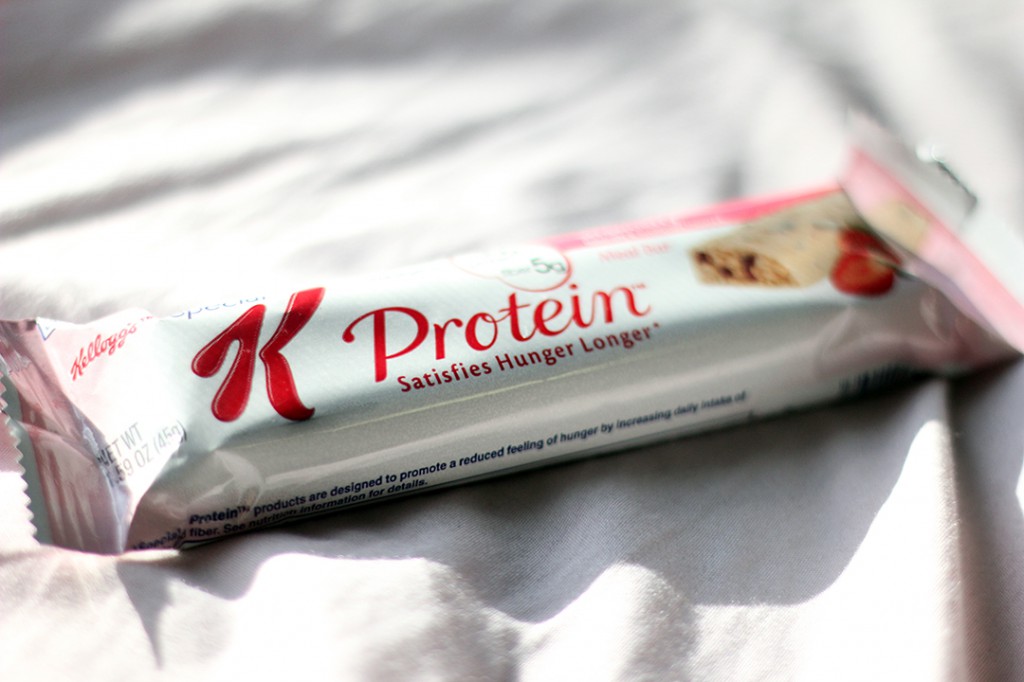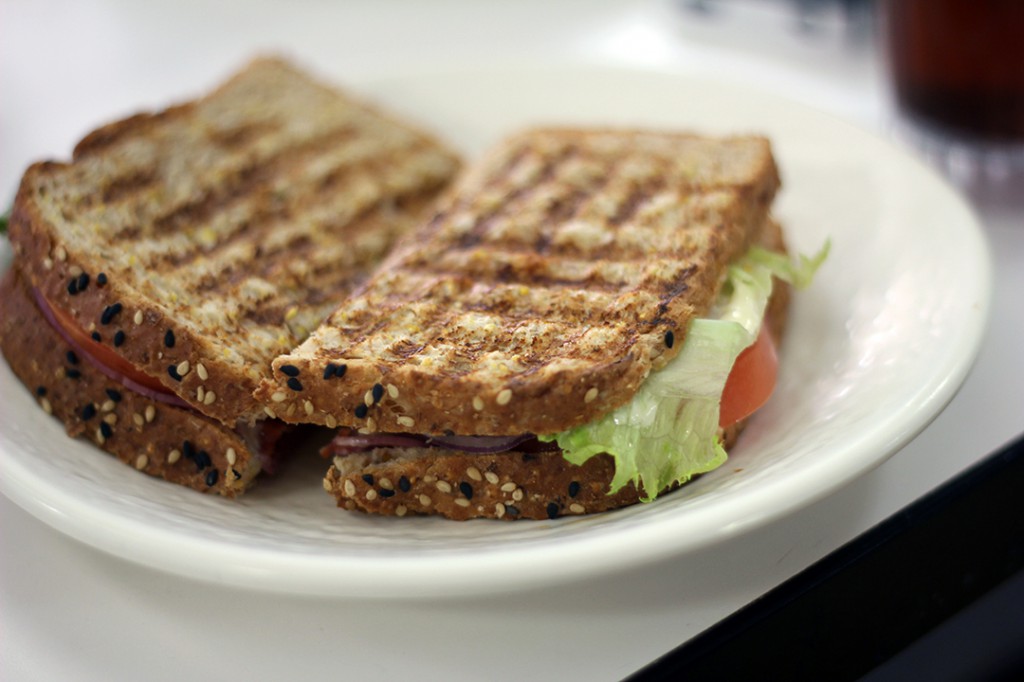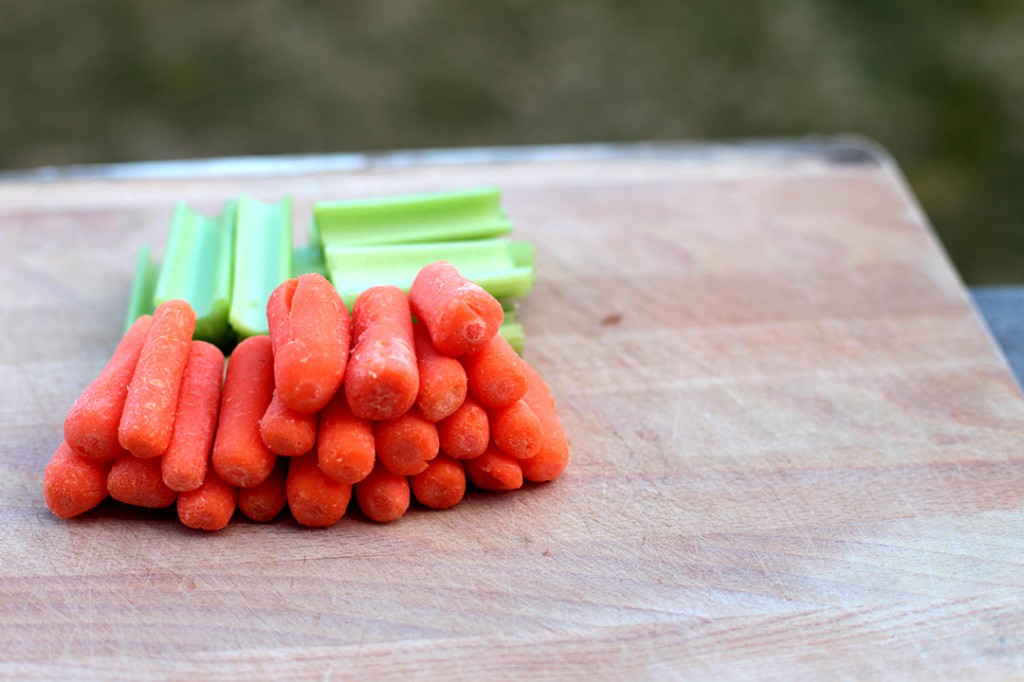Are you hoping for that slim summer body but can’t find enough time to get to the gym? Luckily, just a few simple changes to your diet will help you lose a few pounds or prevent weight gain. Let’s take a look at when and how to eat at healthy times, from the instant you roll out of bed for class in the morning until you crash at night.
Breakfast:
You hit the snooze button for the fifth time in a row and then glance down at your phone. It’s 9:10 a.m., and your class started 10 minutes ago. Springing out of bed, you make it to class in record time, but once you sit down in lecture, your stomach growls like an angry bear. This scenario is all too familiar. When we can barely make it to our morning class, how are we supposed to make time for a morning meal? And, even though Mom says breakfast is the “most important meal of the day,” is it really that necessary?
Well, yes — breakfast actually is important, and you can work it into your morning schedule. According to Livestrong.com, breakfast can benefit memory and concentration and even improve your mood. It can also make you feel less hungry as the day goes on so you’re less likely to gorge on food later. Also, breakfast starts up your metabolism for the day, so that way, you’re burning calories from the get-go.
When to fit it in:
Some say you should eat breakfast within an hour of waking up, which isn’t a bad idea. But really, just try to eat as soon as you can in the morning. Livestrong.com notes that your metabolism will slow down the longer you go without eating.
How to fit it in:
Protein helps fill you up, so pick up some protein bars at the store and keep a few in your backpack to munch on one while you head to class. If you live off-campus, you can make a batch of hard-boiled eggs and keep them in the fridge for grab-and-go use. If you’re craving carbs, though, breakfast is the best time for them, according to Shape.com. Your body metabolizes carbs better in the morning, so for breakfast, try a slice of toast with peanut butter or a granola bar.
If you’ve got a few extra minutes in the morning, try some of these great recipes that you can prepare right in your dorm!

Photo by Stephanie Lee
Lunch:
It’s your busiest day of the week, and you’ve got lecture, then a discussion section, then work, then a meeting. You hardly have time to take a breath, much less stop for your midday meal. What’s a busy student to do? If you skip lunch, it’ll make you hungrier and more prone to eating unwholesome food later on, and you might feel more sluggish without the extra nourishment.
When to fit it in:
Livestrong.com recommends eating about four hours after breakfast. So, if you munched at 9 a.m., chow down again at about 1 p.m. Of course, given your daily craziness, it’s not easy to follow this rule to the letter, but try to do your best with your own schedule.
How to fit it in:
If you know you’re going to have a packed day, take a couple of minutes to make a quick sandwich the night before. Try using whole grain bread topped with protein, such as peanut butter or turkey. Then, when you get ready to head out in the morning, you can just slip your creation into your bag. It’s as simple as that.

Photo by Stephanie Lee
Snacks:
Most of us enjoy snacking and probably do it a little too often, whether it’s because we’re stressed, bored or just hanging out with friends. Snacking is good, but make sure you do it in moderation.
When to fit it in:
According to Self.com, you can keep your metabolism up if you eat a little every three to four hours. So, let’s say you eat lunch at noon. Ideally, you should grab some food around 3 or 4 p.m. These times will fluctuate with your own schedule, but try sticking with the three-to-four-hour rule.
How to fit it in:
Spoon some peanut butter onto celery sticks for a quick protein-veggie combo or pair peanut butter with a sliced apple. If you’re in a rush, grab a whole apple, some baby carrots or healthy nuts such as almonds or pistachios.

Photo by Stephanie Lee
Dinner and late night:
With evening classes, meetings and an overload of homework, we never seem to eat dinner at a consistent time. Whenever you do manage to eat your last meal of the day, try not to eat right before going to bed. Otherwise, you might find it hard to sleep, according to Livestrong.com.
When to fit it in:
Perhaps more importantly, eating late at night may affect your weight. An NU study from 2011 found that a higher body mass index was associated with consuming calories after 8 p.m.
How to fit it in:
Not eating late at night is much easier said than done, especially when you’re up late cramming for an exam and your stomach is begging for sustenance. FitDay.com notes that dehydration is a key instigator of night cravings and recommends drinking water before you eat food. If you’re still hungry, eat foods with protein that will again, fill you up. It’s easy to enjoy a cup of Greek yogurt and still feel guilt-free.

Photo by Karen Ding



